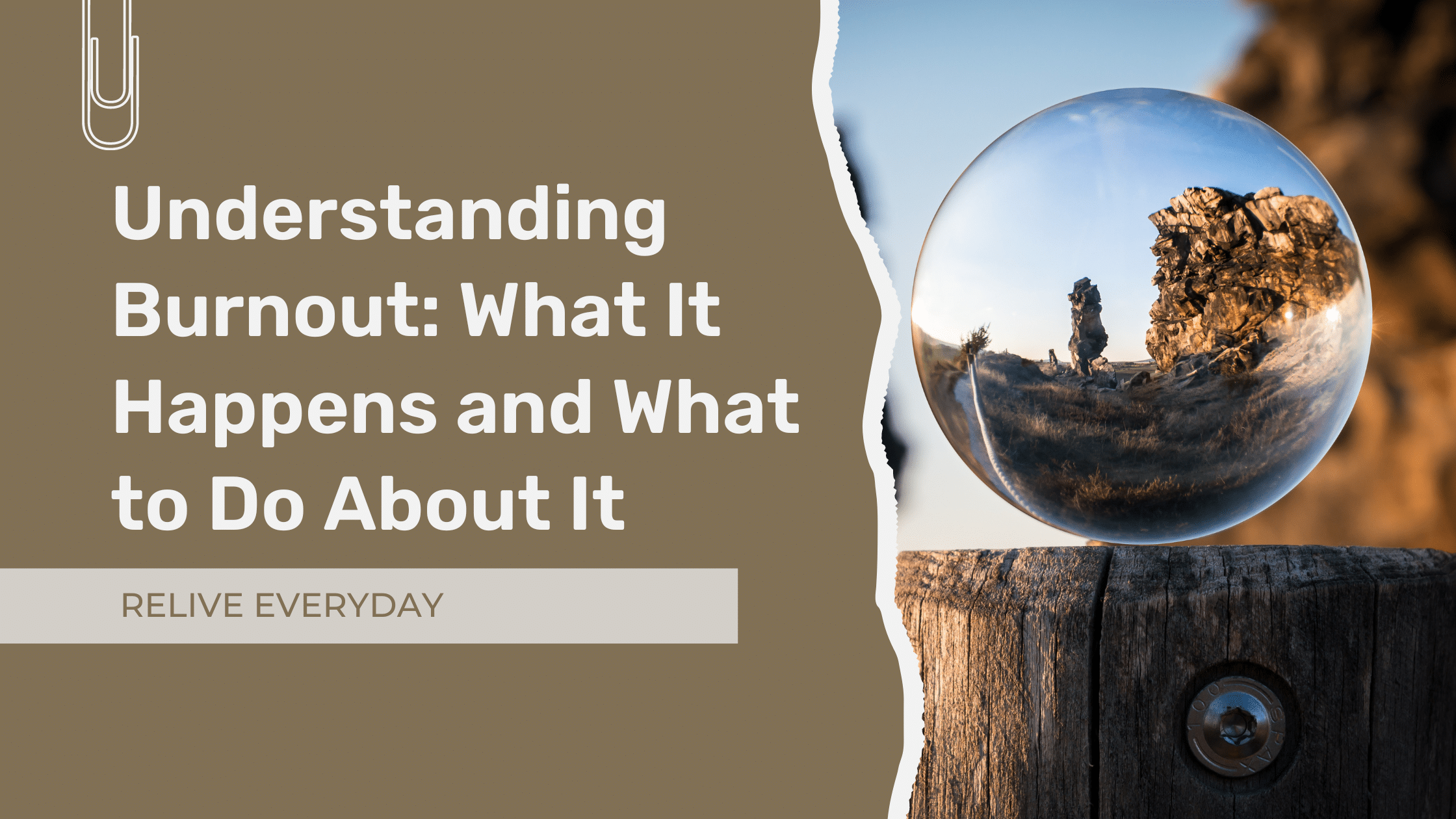
It’s been happening for weeks now. You don’t know how to describe it, but everything is hard. You’re always tired, even when you wake up first thing in the morning. In fact, the simple task of getting out of bed seems insurmountable, and you’ve been spending a lot of time hitting the snooze button. As you finally set foot into the real world, every challenge you face seems impossible. You just don’t have the attention or mental bandwidth to keep going. If this sounds like you, you may be facing burnout, and it’s important to begin understanding why that’s happening and what you can do to stop it.
What is Burnout?
It’s difficult to pinpoint a complete definition of the term “burnout” partially because it’s not a medical diagnosis. Our society hasn’t really begun to recognize burnout and its harmful effects in the same way that some other countries have. However, the APA Dictionary does have an entry for “burnout.”
According to the APA Dictionary, burnout is “of physical, emotional, or mental exhaustion accompanied by decreased motivation, lowered performance, and negative attitudes toward oneself and others.” The first psychologist to use the term was Herbert J. Freudenberger in 1975.
Freudenberger originally used the term in a study he authored about clinicians with extremely heavy caseloads. But since then, other industries have also begun to adopt the term. Now, we realize that burnout exists in nearly every job out there. It’s just a matter of time before all of the little things finally catch up to you.
What Causes Burnout?
Burnout is what happens when anxiety runs amok. However, it takes a special set of circumstances to actually trigger burnout.
Usually, burnout arrives when you put too much of yourself into work or other responsibilities for too long. It tends to center around work because that’s where many of us focus most of our energy. Think of it as driving a car. The speed limit is 75, but for one part of your drive, you accelerate to 85. Then, you decelerate back to 75. It seems like you’re going slower, even though you’re not. Burnout acts like this: a sort of desensitization to how fast we’re actually going, trying to maintain it, and then crashing and burning.
Symptoms of Burnout
Burnout can come on suddenly. One day you may feel extremely stressed and anxious, but not so much that you’re feeling completely crushed. But the next day, you’re completely overwhelmed. That’s one of the most insidious things about this condition. Often, it’s very difficult to detect and prevent until it’s already happening.
However, that doesn’t mean there’s no way to see this coming. If you think you’re starting to feel burned out, check to see if:
- You don’t just have some bad days. Every day is always bad.
- You’re always tired – you have no energy to tap into.
- Everything you do is underwhelming, boring, and pointless.
- It feels like you’re totally unappreciated, and nothing you do makes a difference.
- Caring about anything (work, life, relationships, etc.) seems like a huge waste of time.
Burnout may present some physical symptoms, too. Be on the lookout for frequent pain, like muscle pain or headaches. You should also pay attention for changes in your sleep schedule. What’s more, burnout can physically weaken your body, weakening your immune system and leaving you open to new infections.
Finally, you (or the people around you) may notice behavioral changes from your burnout. Some of the most common include:
- Procrastination
- Isolation
- Projection
- Withdrawing from responsibilities
- Changes in work schedule: coming in late and leaving early
How to Fight Against Burnout
Fortunately, burnout doesn’t have to last forever. Instead, there are some concrete ways that you can get back on track. First, don’t be afraid to take some breaks. You may even deserve a vacation. Taking time away from work (or whatever else is causing your burnout) is one of the best ways to reset. Once you return, you’ll feel way better and be equipped to tackle the challenges your life throws your way.
Exercise is also a great way to help stave off burnout. It’s a great way to channel your energy positively rather than just letting it spiral into anxiety. In addition, exercising will literally release “happy chemicals” known as endorphins into your brain. When your body releases these, it can help put you into a positive mindset and help combat burnout.
Using CBD to Fight Burnout
There may be one more way that you can help fight feelings of burnout to extend the times that you’re productive and happy. CBD, the active ingredient in hemp, appears to reduce feelings of stress and anxiety, according to researchers at the Permanente Journal. That means CBD can be an effective stopgap to relieve feelings of burnout and recover from burnout faster.
If you’re looking for a natural, safe, and effective source of CBD, trust Relive Everyday. We carry many CBD-infused products that can help you put the kibosh on feelings of burnout. Infused products like oils and gummies are some of the most efficient CBD delivery systems available today. What’s more, they have nondetectable levels of THC. That means they have no psychoactive properties and won’t make you feel high.
Want to learn more about how CBD products could help you in your quest against burnout? Discover the ideal CBD product for your specific needs in our online store.